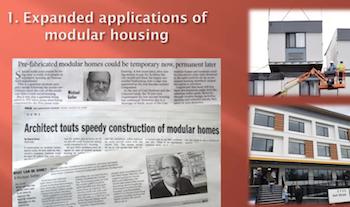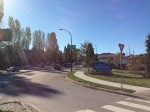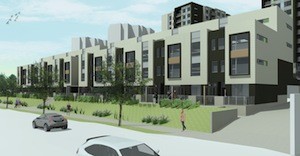Last fall, the Jewish Federation of Greater Vancouver surveyed the impact of inflation on its community partner organizations. As with many recent reports on the effects of rising prices, the feedback was sobering, said Shelley Rivkin, vice-president of global and local engagement at Federation, which conducted the survey.
When asked about how the rise in food and fuel will affect their ability to provide the same level of service, 95% of the organizations that responded said they were either concerned or very concerned about inflation. A similar response was returned when community members were asked about paying school, camp, synagogue or Jewish community centre membership fees.
For social service and housing providers, the main concerns were the level of care, due to reduced staffing; the number of affordable housing units available; food programs for students and families in need; and low-cost (or free) social and recreational programs for seniors. Other organizations cited concerns about the future of kiddush and seniors lunches, volunteer appreciation, building maintenance and upkeep, prepared meals for food bank recipients, and membership subsidies.
The survey notes that rising costs are affecting, to varying degrees, the ability of agencies to maintain their current level of service, recruit and retain staff, raise funds and balance budgets. Some organizations have been unable to provide staff with a cost-of-living-adjustment raise, thereby threatening their capacity to retain staff and deliver programming, and higher salary expectations mean that positions are vacant for longer, limiting the ability to grow programs. Food costs for hot lunches are up 20% and there has been a 25% increase in salaries for kitchen staff.
Rivkin stressed that, in the four months since the survey was conducted, costs have come down for some items, but the price of food continues to rise.
“Our agencies and synagogues survived COVID, and we thought we were past the difficult times,” she said. “However, we are now seeing the impact of inflation on them. When we decided to undertake the survey, we had no idea about the depth and breadth of the impact of inflation or that these pressures would affect everything from staff salaries to the cost of paper supplies. We are now working with our community agencies to explore ways to reduce costs. We recently hosted a lunch-and-learn featuring speakers from the Buying Networks Canada.”
The Buying Networks Canada is a Toronto-based organization that helps nonprofit, charitable and faith-based organizations across Canada save money on such things as food and beverages, office supplies and equipment, maintenance, and numerous other products and services.
In the summer of 2022, Jewish Family Services (JFS), one of Federation’s community partners, released information on the impact of inflation. Among the points in the JFS report were an increase in the number of clients asking for food voucher assistance, a record number of intakes for home support and the challenges Ukrainian newcomers on a limited income face with rents and food costs.
Food insecurity, according to JFS, has grown in recent months and the organization expects an increase of 150 new clients, if trends continue. Higher prices at the gas pump have resulted in fewer volunteer drivers. The greater need for services has translated into a higher workload for JFS staff.
“Community that JFS serves is on fixed income, and those individuals are the ones who suffer tremendously during this time,” said Tanja Demajo, chief executive officer of JFS. “What that means for JFS is that the number of people reaching out for help is on constant rise. Between the rise in prices, number of clients and cost of staffing, we as an agency have to ask ourselves what is our priority. This is the time when we get clarity, more than ever, who we are and what we need to do. Our goal has always been not to leave anyone behind. We hope that, even during the challenging times such as these, we can remain true to that.
“Since COVID,” she added, “staffing has been a significant challenge. It is very uncomfortable for many agencies to speak about issues of salaries, but the reality is that the professional staff has always been underpaid in the nonprofit world. With inflation, this issue has further grown and, unless taken seriously, it may impact the whole social sector in irreversible ways. Providing social support is based on relationships, and with constant changes those relationships get eroded.”
Anat Gogo, executive director of Tikva Housing Society, another Federation partner agency, is also concerned. “Inflation significantly impacts the delivery of housing programs due to increased costs and reduced availability of resources,” she said. “It can also make it more difficult for low-income households to afford adequate housing, so we are reaching out to our donors to assist us in ‘gapping’ the additional … funding needed to meet our commitment to the delivery of affordable housing and rent subsidies.”
Sam Margolis has written for the Globe and Mail, the National Post, UPI and MSNBC.







